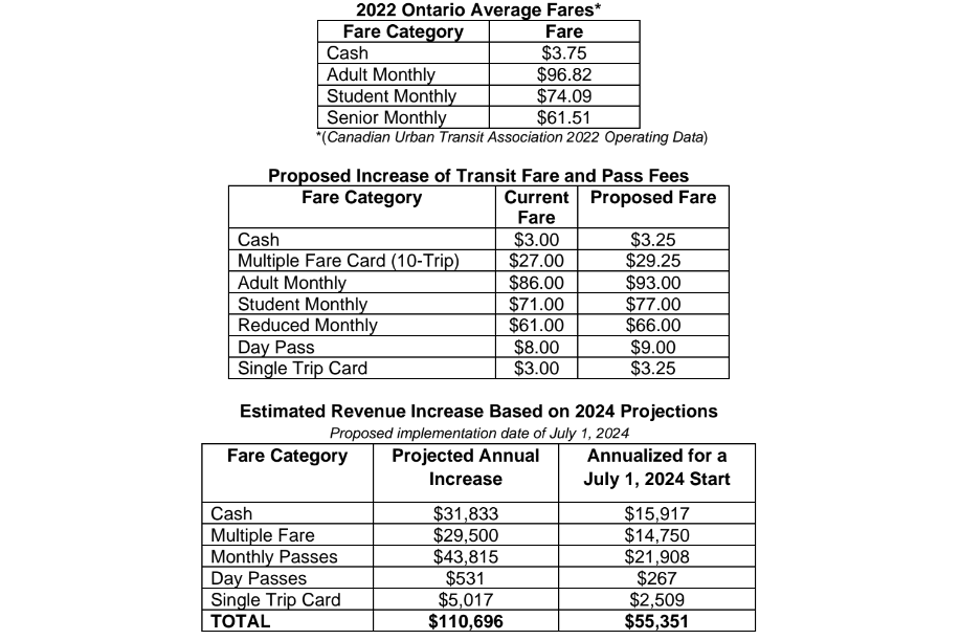At a public meeting held Monday evening, the only objections heard in the chambers about the City of North Bay's plan to increase transit fares for the first time in 10 years came from city councillors.
The recommendation from the committee is to move the proposal to the council level for a vote. Instead of the proposed July 1 implementation date, the increase will be pushed to Sept. 1 with council approval and a staff report will look at the impact of the hike on certain user groups.
No members of the public made a presentation regarding the proposed transit fare increase that will see the cash fare rise from $3 to $3.25, with 10-trip cards rising from $27 to $29.25. A monthly adult pass would cost $93, up from $86. A student's monthly pass would go up $6 to $77.
Council did receive emails from constituents requesting a socio-economic review of the transit proposal focusing on the demographics of riders and if the age to qualify as a senior should decrease, Deputy Mayor Maggie Horsfield, the chair of the general government committee confirmed. User fee changes fall under this committee.
See the full fare increase breakdown below:

Councillors Lana Mitchell and Tanya Vrebosch each advocated to examine the ramifications of raising the "reduced" monthly fee from $61 to $66.
Vrebosch did not support the proposal during budget talks earlier this year, saying she worried about how the hike would affect "people below the poverty line or people who are working poor, and if it's their means to get to work ... the monthly pass is almost $100 ... we are the highest per capita of ODSP recipients."
Under the present fare structure, a disability pensioner with documented proof of current ODSP registration or CPP disability registration issued by the Government of Canada qualifies for the reduced monthly $61 pass, as do seniors aged 65 and up with an Ontario Senior Citizens I.D. issued by the Government of Canada.
Both Vrebosch and Mitchell pushed for more consultation with the user groups.
"There hasn't been an increase to transit in 10 years," observed Mitchell, who also serves as the council's chair of infrastructure and operations, which oversees transit. "We know that costs have increased substantially. On a cost basis, an increase makes sense. And, then there is the other side. Who are the users of transit, who are actually on those buses?"
Based on North Bay Transit's projections, an estimated increase in transit revenue of $110,696 annually would be realized.
"I don't have a problem with the increase, what I think we need to do is get a full and detailed report from staff that provides us with input ... We need to focus on who uses that service," Mitchell added.
"The last transit fare increase was in 2015. Since that time, we've seen substantial increases in our operating costs, material costs, and fuel costs," Transit Manager Drew Poeta said. "The cash fare average across the province was $3.75. Currently, we are at $3 and the proposal is a $3.25 fare and, basically, an 8 per cent increase across all categories to match that."
A fare in Sault Ste. Marie is $3.25 and in Greater Sudbury, an adult fare costs $4 although Vrebosch previously pointed out that Peterborough and Orillia both charge $3, on par with the present fare in North Bay.
.png;w=960)


